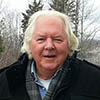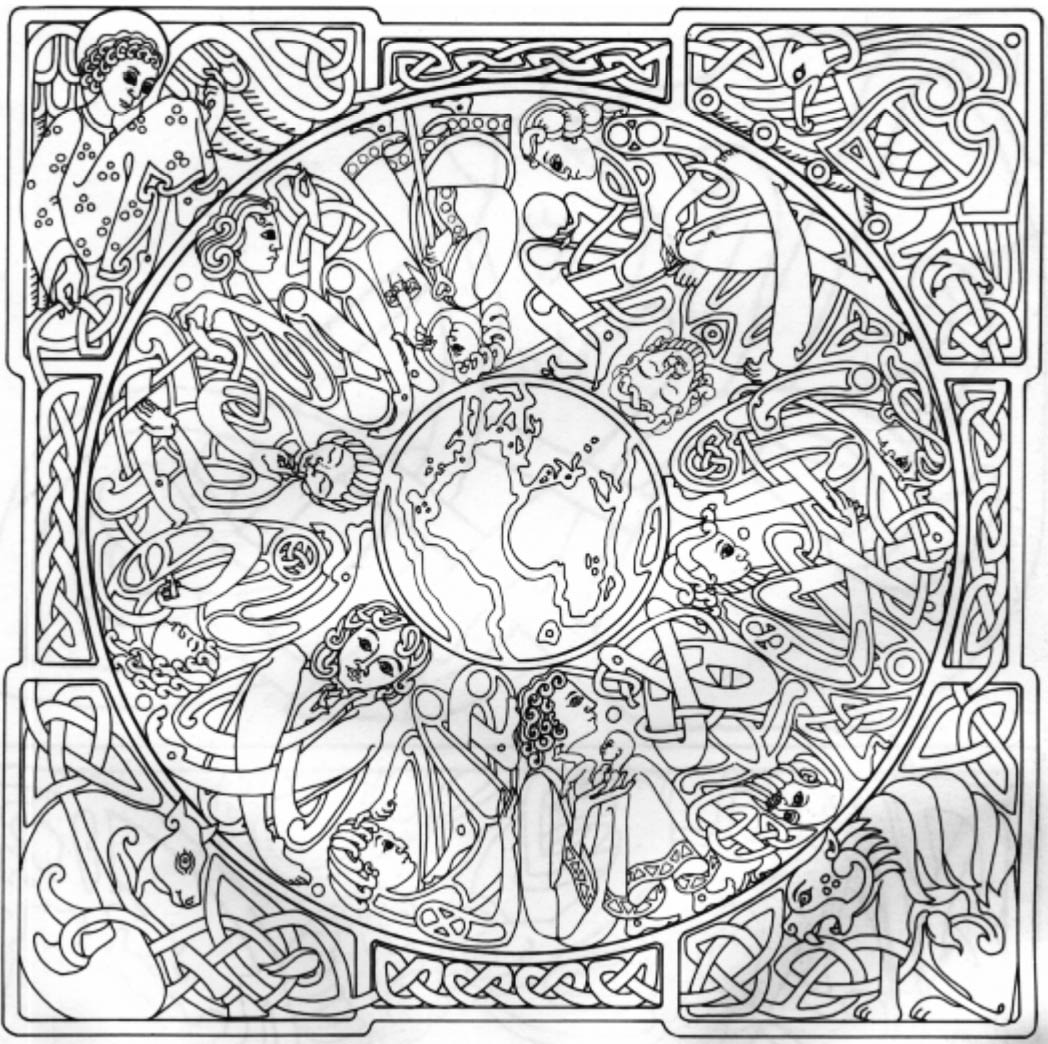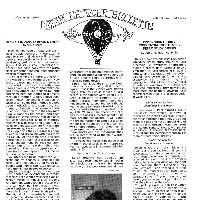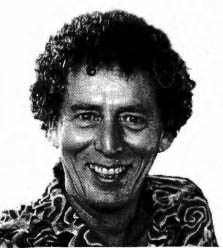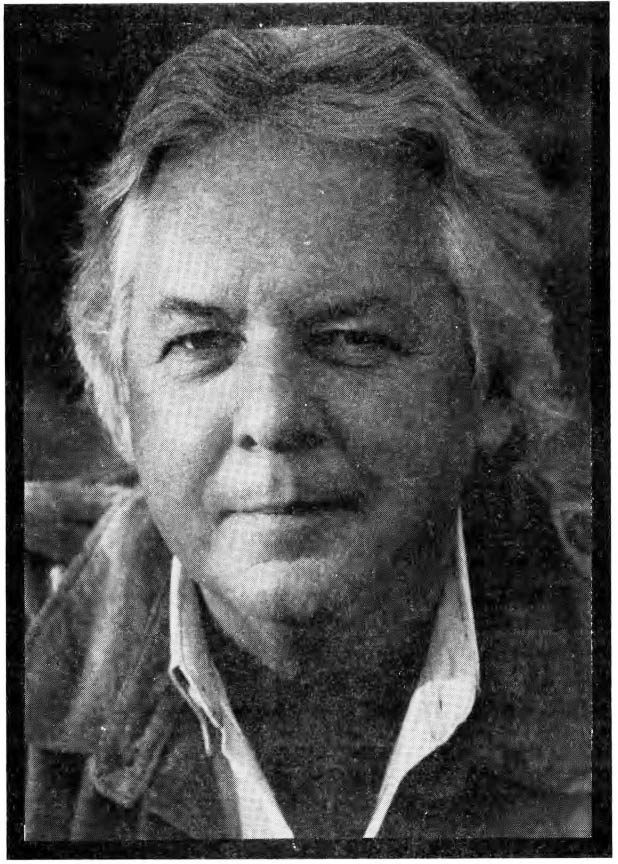
I have a dream: that we will again become a society of dreamers. In a dreaming culture, dreams are valued and celebrated. The first business of the day, for most people, is to share dreams and seek to harvest their guidance. The community joins in manifesting the energy and insight of dreams in waking life.
In a dreaming culture, nobody says, "It's only a dream" or "In your dreams, mister." It is understood that dreams are both wishes ("I have a dream") and experiences of the soul; that in dreaming, the soul may travel beyond the limits of physical existence and return with gifts from higher realms.
Dreaming traditions-like those of Australian Aborigines, Native Americans and early European peoples - recognize that the dreamworld is a real world, possibly more real than much of waking life, in which we often stumble about in the condition of sleepwalkers. In big dreams, we "wake up" to a larger reality.
Dreaming peoples know that one of the central functions of dreaming is to keep us connected to sources of healing, creativity and spiritual insight in an order of reality that is hidden from ordinary perception.
Another of the vital functions of dreaming is to rehearse us for challenges that lie ahead in ordinary life. Dreaming peoples know that we dream the future, maybe all the time. An Iroquois dreamer of my acquaintance says, "Nothing happens until it is dreamed." If you can dream the future, you may also be able to change it for the better by making intelligent use of the information.
If dreams were honored throughout our society, our world would be different. ... and magical. Let me count the ways:
1. Dream Partners
Personal relations will be richer, more intimate and creative. There will be less room for pretense and denial. Sharing dreams, we overcome the taboos that prevent us from expressing our real needs and feelings and open ourselves to those of others.
2. Family life and home entertainment
"What did you dream?" is the first question asked around the table in a family of dreamers. In our dreaming culture, families everywhere will share dreams and harvest their gifts of story, mutual understanding and healing. Parents will listm to their children's dreams and help them to confront and overcome nightmare terrors. Best of all, they will learn from their children, because kids are wonderful dreamers. This might be bad for TV ratings but it would bring back the precious arts of storytelling, helping us learn to tell our own story (a gift with almost limitless applications) and to recognize the larger story of our lives.
3. Dream Healing
In our dreaming culture, dream groups will be a vital part of every clinic, hospital and treatment center and doctors will begin their patient interviews by asking about dreams as well as physical symptoms. Health costs will plummet, because when we listen to our dreams, we receive keys to self-healing. Dreams often alert us to possible health problems long before physical symptoms develop; by heeding those messages, we can sometimes avoid manifesting those symptoms. Dreams give us an impeccable nightly readout on our physical, emotional and spiritual health. Our bodies speak to us through dreams, giving us timely guidance on what we should do (and not do) to keep them well. For example:
Gloria's Dream Diagnosis
Gloria had suffered for months from painful swelling in the lymph nodes under her arms. She was worried sick about the threat of cancer and insisted that her doctor perform a biopsy after a mammogram was negative. Her doctor then suggested that the swelling could be caused by "cat-scratch fever." Gloria submitted to medication that did nothing to improve her condition. Frustrated, she asked for dream guidance. In the dream that came, she watched someone being fitted with a neck brace, part of a complicated "head apparatus." In the dream, people were laughing at the patient in a way that irritated Gloria; they did not seem to realize that she had fractured her neck. Waking, Gloria could see no connection between her dream and her physical symptoms. But she was goaded to seek a second medical opinion. Her new doctor detected a link between the pain in her arms and a neck problem she had not noticed in waking life. His examination revealed a degenerative disk disease in her neck. When it was treated, the swelling in her arms went away.
4. The Care of Souls
As a dreaming culture, we will remember that the causes of dis-ease are spiritual as well as physical. We will use dreams to monitor and rectify energy loss, psychic intrusions and unhealthy relations between the living and the departed. The insights we gain will help to make Asklepian dream healing and shamanic soul work part of mainstream medicine and psychology.
We will work with dreams that alert us to the "energy thieves" in our lives. Linda dreamed that her car kept stalling because someone she knew was draining its battery. She realized that the energy thief was a needy friend and corrected their relationship.
We will use dreams to facilitate soul recovery. In dreams where we encounter a younger version of ourselves, or are drawn back to a scene from childhood, we are brought to recognize a deeper kind of energy loss, that shamans call soul loss. Through trauma or abuse, through addiction or great sadness, we can lose a part of our vital soul energy. So long as it is missing, we are not whole and the gap may be filled by sickness or addiction. Dreams show us what has become of our lost children and when it is timely to call them home.
5. Dream Incubation
In a dreaming culture, we will remember to "sleep on it", asking dreams for creative guidance on school assignments, work projects,relationships and whatever challenges are looming in waking life. When we seek dream guidance, we must be ready for answers that go beyond our questions, because the dream source is infinitely deeper and wiser than what Yeats called the "daily trivial mind."
Some of the dreams I have incubated have been watershed events in my life, leading me beyond ego-bound agendas. I once sought dream guidance on a plan to write a commercial thriller, following the formula of a previous bestseller I had published. In my dream,
I entered a luxurious restaurant where a banquet for thousands was about to be served, all in my honor. There was just one problem: the master chef had walked out because he did not like my menu.
I got the message: If I chose to repeat myself in pursuit of commercial success, I would part company with the most creative part of myself, my "master chef". I abandoned the book project because of this dream, which brought me the salutary reminder that value must never be confused with market valuation.
6. Using Dream Radar
Dreaming, we routinely fold time and space and scout far into the future. In my journals, I have logged hundreds of correspondences between dreams and subsequent events in waking life.
Here are two typical examples:
Dream #1:
Sixty-eight people have enrolled for one of my work-shops. The week-end presents complex challenges, which my dream rehearses in detail. (7/31-8/1/96)
Follow-up: Just over a year later, sixtyeight people signed up for one of my workshops. The old dream report provided invaluable and specific guidance on challenges that developed in the course of the weekend. (8/28/97)
Dream #2:
I am watching a silly little dog decked out in fake antlers for a Christmas pageant. The dog runs out on the road and is killed but is magically revived by a bizarre character who seemed alien to normal patterns of human behavior. (3/9-10/97)
Follow-up: The next day, thanks to a missed connection and a change of flights, I found myself watching the in-flight movie on a plane bound for Denver. A silly dog with fake antlers appeared on the screen. The dog was killed on the road and miraculously revived by a low-flying angel played by John Travolta in the movie "Michael." (3/10/97)
I have never seen more time wasted in dreamwork than when we fail to run a simple reality check on dream material to explore the possibility that we have previewed the future. As a dreaming culture, we will work with dream precognition on a daily basis-and develop strategies to revise the possible futures foreseen in dreams for the benefit of ourselves and others.
7. Building Communities
When we share dreams with others, we recognize something ofourselves in their experiences. Working with beginners' dream groups, I enjoy the thrill of recognition that travels round the circle as people announce the titles of their dreams . "Naked in public. "Back in school." "Falling." "Snake dance." "My dead mother comes to visit".
Dreaming, we actually find ourselves in the skin and life situations of different people. A Texas woman shared the following dream:
In A Black Man's Body
I am walking down the street in New Orleans. I notice something different about myself, about my perception of temperature, the way my body hangs. I look down and notice I have very long, muscular legs. A man's legs! And they're black! At this point, I become aware I am dreaming. I am drawn to the smell of wonderful cajun food wafting from a restaurant. A couple of white men block my way, making racist remarks. Someone signals telepathically, "Get out of this place before you succumb to his rage."
The Texas woman marveled at the way she found herself inside the mindset of another person. "If we could all have the experience of being in someone else's skin," she told me, "we'd get over our prejudice and preconceptions." I believe she is right. In our dreaming culture, we will build community on the level of soul.
8. The Art of Dying
The path of the soul after death, say the Plains Indians, is the same as the path of the soul in dreams - except that after physical death, we won't come back to the same body. Dreamwork is a vital tool in helping the dying to prepare for the conditions of the afterlife. For example:
Wendy's Waterslide World
Wendy dreamed she was shooting down a slide into an Olympic-size swimming pool, behind her mother. She was happy but puzzled, because in waking life her mother was terrified of the water and had never learned to swim. As Wendy' s mother splashed into the pool, a barrier came down, preventing Wendy from following. When she peered over the barrier, she saw her mother frolicking with a handsome, muscular young man she recognized as her father as he might have looked when he was thirty.
When she shared this dream, Wendy told me she felt her elderly mother was approaching death but was full of fear. Her mother had never shared dreams. "I had the dream my mother should have had." Wendy mused. I suggested she might try recounting the dream to her mother, bring ing out all the happy, sensual detail and see whether in some way she could make it her mother's dream.
Wendy's mother enjoyed this, asking her to retell the dream again and again. A week later, she called in high excitement to report that she had had her own dream of her late husband. He had appeared as a handsome 30-year-old. He told her he lived in a beautiful valley where it was always spring and would be waiting for her when her time came.
In our dreaming culture, dream encounters with the departed will no longer be psychologized away. They will be screened carefully to establish whether they are genuine contacts and whether they contain information that is helpful to either the living or the departed. In the year after my father's death, he came to me repeatedly in dreams with valuable guidance for the family, including practical and specific information to which I did not have access in waking life. Sometimes (as Jung observed) the departed seem to need help from the living, especially when they have become lost or confused, frequently because they are not aware that they are "dead." Active dreamers will develop the ability to dialogue with these spirits and help them find their right path.
9. Walking the Path of Soul
The greatest gift of dreaming is that it facilitates an encounter between the little self and the big Self. Active dreaming is a vital form of soul remembering... of reclaiming knowledge that belonged to us, on the levels of soul and spirit, before we entered this life experience. So much of the harm we do to ourselves and others stems from the fact that we have forgotten who we are and what we are meant to become. Dreaming, we remember... and encounter authentic spiritual guides who will help us on our paths. I remember vividly how I was taught by a vision guide who first appeared to me during a life-threatening illness in early childhood that all true knowledge is anamnesis, the act of remembering.
Dreaming, we remember our kinship with all living things and the Earth that sustains us. Dreaming we walk between worlds and remember that our spirits are starborn. As a society of dreamers, we will participate actively in the emergence of a more gifted and generous version of our species: the multidimensional human. We will come to re-vision our world of physical extension and linear time from a higher dimension and operate (sleeping or waking) in a state of multiple consciousness. We will treat others with greater compassion, knowing that we are all related and face the surface events in our lives with greater courage and generosity, knowing that they are only part of a much bigger story.
Creating a dreaming culture is not science fiction. It is a possible future that all dreamers can help bring into manifestation, because we all dream and because there are times when dreams will push through even the most hardened carapace of skepticism or materialism. Without preaching, without shouting, all of us who value dreams can give others a safe space in which to start sharing their own inner experiences. The encounter may come at a bus-stop, in a supermarket, in line at the post office or around the kitchen table, with a total stranger or a close relative who is opening up for the first time.
We can give those who are just beginning to share their dreams the gift of validation: confirmation that they are not alone, that they are not going crazy, that their dreams are not "only" dreams. We can encourage every dreamer to claim her own power, by recognizing her as the final authority on her own dreams. Without setting ourselves up as experts, we can offer the insights of frequent fliers. We can share what real dreamers know:
We are born to fly, and in dreams we remember the soul has wings.

